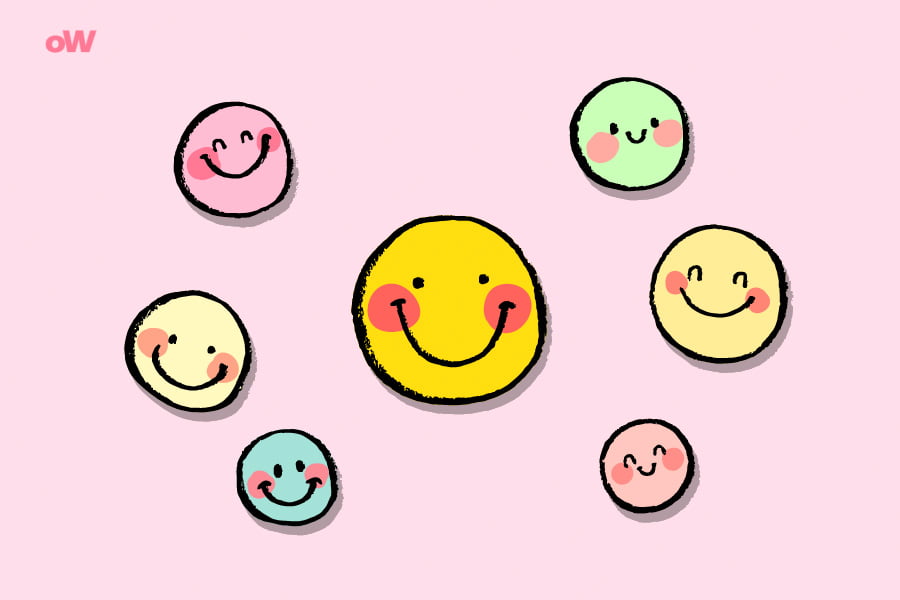Quiz: What’s Your Red Flag?

In the world of modern relationships and self-discovery, the term “red flag” has become an integral part of our lexicon. But what does it really mean? And why is it so important to know your own “red flags”? Let’s dive into this fascinating world of self-analysis and figure out how a simple quiz can reveal deep truths about our personality.
Decoding the Term “Red Flag” in the Context of Relationships
The history of the term “red flag” goes back to ancient times when red flags were used as a signal of danger on battlefields. In psychology, this term began to be actively used in the 1970s, when psychotherapists started applying it to describe alarming signals in patients’ behavior.
In the context of modern relationships, a “red flag” is not just a metaphor, but a whole complex of psychological reactions based on our experience, upbringing, and social environment. Neurobiologists claim that the reaction to a “red flag” activates the same brain areas as the reaction to physical danger, causing a release of cortisol and adrenaline.
Why is this important? Because understanding the mechanism of “red flags” allows us not only to improve the quality of our relationships but also to reduce stress levels in everyday life. When we realize that our reaction to certain behavior of a partner is not just a whim, but a deeply rooted defense mechanism, we can begin to work on ourselves more effectively.
Explanation of the “Red Flag” Quiz
The “What’s Your Red Flag?” quiz is not just a set of random questions. It was developed by a team of psychologists, sociologists, and data analysts based on years of research and analysis of thousands of cases from family counselors’ practice.
How does the quiz work? The algorithm uses machine learning methods to analyze your answers. Each question has its weight and is associated with certain psychological patterns. For example, a question about how you react to criticism may be related to your level of self-esteem and ability to empathize.
It’s important to understand that the quiz results are not a diagnosis, but a starting point for self-analysis. They can point to areas that need attention, but the interpretation of results should always go through the prism of your personal experience and context.
Who is this quiz for? It can be useful not only for people in relationships but also for those who are just looking for a partner. Moreover, HR specialists are increasingly using similar tools to assess employee compatibility in a team.

The Importance of Understanding Your Red Flags
Knowing your “red flags” is not just interesting information, but a key to life transformation. Research shows that people who are aware of their triggers are 40% less likely to enter toxic relationships and 60% faster to get out of them.
How does this work in practice? Imagine that you’ve discovered that one of your “red flags” is excessive control from a partner. Now that you know this, you can:
- Learn to recognize early signs of controlling behavior.
- Develop communication strategies to discuss this issue with your partner.
- Set clear boundaries in relationships.
- Work on your self-esteem to be less vulnerable to manipulation.
Moreover, understanding your “red flags” can help not only in personal life but also in your career. For example, if you know that micromanagement is your trigger, you can more consciously choose workplaces and interact more effectively with management.
The Impact of Red Flags on Our Life and Decision-Making
“Red flags” influence our decisions at a neurobiological level. When we encounter a situation that our brain interprets as a “red flag,” the amygdala, responsible for the “fight or flight” reaction, is activated. This can lead to impulsive decisions that are not always optimal in the long term.
How does this manifest in real life? Here are a few examples:
- Partner choice: Research shows that people often choose partners who confirm their negative expectations based on “red flags.” This creates a vicious cycle of toxic relationships.
- Career decisions: “Red flags” can make us turn down a promising job or, conversely, stay in an uncomfortable situation out of fear of change.
- Financial decisions: Our “red flags” can influence how we manage money. For example, fear of poverty can lead to excessive saving or, conversely, to impulsive spending.
- Social interactions: “Red flags” can determine who we befriend and how we behave in social situations.
Understanding these mechanisms allows us to make more balanced decisions based not on fear or automatic reactions, but on conscious choice.

Types of Red Flags
There are many classifications of “red flags,” but one of the most comprehensive includes the following categories:
- Emotional: related to emotion management and emotional intelligence. Example: a partner’s inability to express emotions or, conversely, excessive emotionality.
- Communicative: refer to ways of communication and conflict resolution. Example: passive-aggressive behavior, inability to engage in constructive dialogue.
- Behavioral: concern specific actions and habits. Example: alcohol abuse, disrespect for personal boundaries, arrogance.
- Value-based: related to life priorities and worldview. Example: different views on child-rearing or financial planning.
- Social: relate to interaction with the surrounding world. Example: social isolation, excessive dependence on others’ opinions.
- Professional: concern attitude towards work and career. Example: lack of ambition or, conversely, workaholism.
- Sexual: related to the intimate sphere of relationships. Example: incompatibility in sexual preferences or frequency of intimate closeness.
- Psychological: deep patterns, often related to childhood traumas. Example: narcissism, codependency.
Identifying Red Flags
Identifying your “red flags” is a process that requires time and effort. Here’s a step-by-step action plan:
- Keeping a journal: Record situations that cause strong negative emotions. Analyze what exactly triggers you.
- Analysis of past relationships: Write down all the reasons for the breakdown of previous relationships. Look for recurring patterns.
- Feedback: Ask close people to honestly tell you about your reactions that seem excessive to them.
- Professional help: Consultation with a psychologist can help identify the root causes of your triggers.
- Meditation and mindfulness: These practices increase self-awareness and help you better understand your reactions.
- Experiments: Deliberately put yourself in situations that cause discomfort (in a safe environment) and analyze your reactions.
- Genealogical analysis: Study your family history. Often our “red flags” have roots in family patterns.

Strategies for Managing and Overcoming Red Flags
Managing “red flags” is not just about avoiding them, but a comprehensive approach to personal growth. Here are several strategies:
- Cognitive Behavioral Therapy (CBT): This method helps change negative thought patterns associated with your triggers.
- “Pause” technique: When you feel you’re encountering a “red flag,” take a 5-10 second pause before reacting. This will help avoid impulsive actions.
- Trigger journal: Keep a detailed journal of situations that cause strong reactions. Analyze them weekly, looking for patterns and opportunities for growth.
- Mindfulness practice: Regular meditations and mindfulness exercises will help you better control your reactions.
- Group therapy: Discussing your “red flags” with people who have similar problems can provide new perspectives and strategies.
- Exposure therapy: Gradual and controlled exposure to your triggers can help reduce their impact.
- “Rewriting the script” technique: Imagine a situation that causes a “red flag” and mentally “rewrite” your reaction to a more constructive one.
- Physical activity: Regular exercise helps reduce overall stress levels, making you less vulnerable to triggers.
- Learning emotional intelligence: Developing the ability to recognize and manage emotions will help you better cope with “red flags.”
- “What would my best friend do?” technique: When you encounter a trigger, ask yourself how your best friend would react in this situation.
In conclusion, the “What’s Your Red Flag?” quiz is not just entertainment, but a powerful tool for self-knowledge and personal growth. Understanding and managing your “red flags” is a path to healthier relationships, a successful career, and ultimately, a happier and more harmonious life. Remember that working on yourself is a continuous process that requires patience and self-compassion. Each step on this path is a victory that brings you closer to the best version of yourself.
How to Play?
Click the "Start Quiz" button and answer each quiz question honestly. There are no right or wrong answers. You may encounter multiple-choice questions or statements to rate on a scale of agreement. Once you finish the quiz, you'll receive results that provide insight into your personality traits, including strengths and weaknesses. Use this information to increase self-awareness and make positive changes.
How many questions does this quiz have?
15 Questions
How long does it take to complete this quiz?
6 Minutes
Questions Overview
- Always. They make sure to understand and acknowledge my feelings.
- Most of the time, but sometimes they dismiss it as being trivial.
- Only when it suits them or when they are not too busy.
- Rarely or never. It seems like they do not care about my feelings.
- They acknowledge my perspective and we discuss our differences respectfully.
- They get a little defensive but we usually find a middle ground.
- They tend to avoid the conversation or change the topic.
- They get angry, dismiss my views, or blame me for the disagreement.
- They are respectful and include me in conversations.
- They engage with others but often check up on me.
- They sometimes ignore me to focus more on others.
- They often leave me alone, behaving like a single person.
- They respect it completely and understand when I need time for myself.
- They occasionally intrude, but not without my consent.
- They don't fully understand my need for personal space.
- They often violate my personal space without considering my feelings.
- They speak respectfully about their past relationships.
- They sometimes compare our relationship with the past ones.
- They often bring up their exes, which makes me uncomfortable.
- They bad-mouth their exes and make harsh comments.
- Always. They are my biggest cheerleader.
- Most of the time, but sometimes they doubt my capabilities.
- Only if it aligns with their plans and expectations.
- Rarely or never. They often belittle my ambitions.
- They face it head-on and work together with me to solve it.
- They get uncomfortable but don't shy away from discussing the issue.
- They try to avoid it and often use humor to distract from the issue.
- They react defensively and often start blaming or attacking.
- They are genuinely happy and proud of me.
- They congratulate me, but sometimes it seems they are a bit jealous.
- They appreciate it, but quickly change the topic to something about themselves.
- They rarely show enthusiasm or they belittle my accomplishments.
- They treat everyone with kindness and respect, regardless of their status.
- They are usually polite, but sometimes they can be dismissive.
- They often ignore such people, focusing more on those who can benefit them.
- They treat such people rudely or with disdain.
- They take care of me and do everything they can to make me feel better.
- They show concern but often don't know how to comfort me.
- They check up on me but expect me to take care of myself.
- They are more bothered about how my sickness will affect them.
- Always. They are mature enough to accept when they're wrong.
- Most of the time, but sometimes they struggle to admit their mistakes.
- Rarely. They often make excuses or justify their actions.
- Never. They always blame others for their wrongdoings.
- Regularly and sincerely, they make sure I know I am loved.
- They express their feelings, but it can feel a bit awkward or forced.
- Only on special occasions or when they want something from me.
- Rarely or never. It often feels like they take me for granted.
- They communicate their feelings and try to stay balanced.
- They sometimes get moody but apologize for their behavior later.
- They take their stress out on me or other people.
- They completely shut down or become aggressive.
- They encourage me to have my own social life.
- They show a little jealousy, but understand the importance of my friendships.
- They often make me feel guilty about leaving them alone.
- They become overly possessive or accuse me of neglecting them.
- They always discuss it with me and respect my opinions.
- They sometimes make decisions without consulting me but are open to feedback.
- They often make decisions without considering how it might affect me.
- They always make decisions unilaterally, ignoring my perspective.





